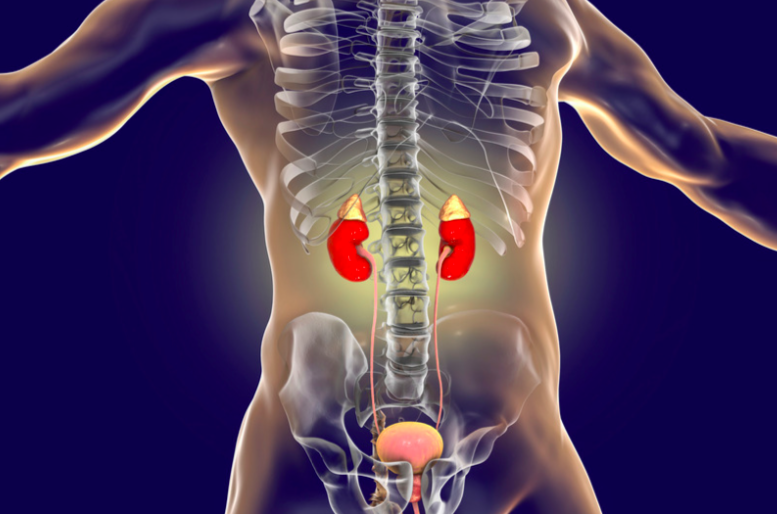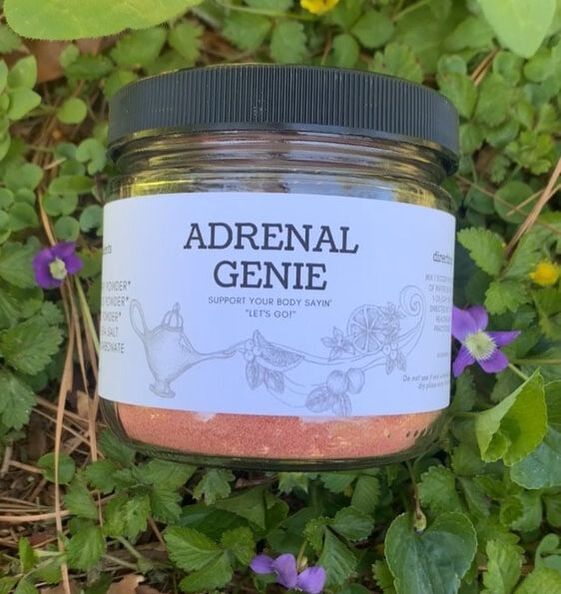|
Support your body sayin' ,"Let's Go!" How many of the questions below are YES for you?Wake up groggy? Experience morning stiffness? Don’t feel awake until your morning coffee or caffeinated tea/beverage? Experience afternoon crashes and/or yawning? Drink coffee or a caffeinated bev first thing in the morning? Have trouble feeling motivated? Difficulty falling asleep? Categorize yourself as a night person? Tend to be keyed up or anxious? Clench or grind teeth? Feel dizzy when you stand up quickly? Rely on alcohol to help you wind down in the evening? Crave chocolate? Crave salty foods? Sweat easily? Decreased sense of taste or smell? If you answered YES to 4 or more, your body is trying to tell you something! Are you ready to listen?Are you burning the candle at both ends?When we consistently give more than we put back into our bodies, imbalance inevitably sets in. In the current state of the world, whether you are male or female, old or young, we are up against many challenges that our evolutionary bodies aren’t equipped to deal with. Furthermore, our modern food system is devoid of key minerals and nutrients required for our bodies to optimally function. Too much exertion + too little nourishment is a recipe for depletion. Despite our topsy turvy world, there are many ways to find balance, restoration, and nourishment within it. For as many negativities that exist, there are even more beneficial modalities to support our bodies, minds, and spirits. The latter is where we like to focus our energies and is one of the reasons why we created Adrenal Genie. The adrenals use minerals to build hormones that help us respond to challenging situations accordingly. If we are constantly in a challenged state of mind and/or being, the adrenals can become especially overtaxed. Since it takes much energy, vitamins, and nutrients to respond to challenging situations, it’s important we are filling our cup back up regularly to keep our body in balance. About the IngredientsWhole food Vitamin C
Sea salt
Potassium bicarbonate
Adrenal Genie FAQsShould I consult a healthcare practitioner before taking this product?
How much should I take?
Should I take it with food?
Do I have to have it with 8 oz of water only?
Can I take too much?
These statements nor product have not been evaluated by the FDA. This product is not intended to diagnose, treat, cure or prevent any disease.
Do not use if seal is broken. Store in cool, dry place away from children. Don't be Stressin'! Start Addressin'...Your body’s biological needs in a demanding world Stress. What a loaded concept! We throw around this word all the time. "I’m stressed out. Work/my partner is really stressing me out. I’m stressed that I’ll miss my flight. " etc. etc. The world is demanding, so of course we feel & talk about this sensation a lot. It’s important to understand what stress is, how it’s affecting the body, & why we are wired the way we are. If you don’t understand these concepts, it will be near impossible to thrive in an otherwise unbearably stressful modern world. Plus, as Herbalists it’s beautiful to see how many herbs provide the vitamins & minerals necessary to support a body under stress What Is Stress (scientifically speaking) ? Stress wasn’t even a word in our vocabulary until it was coined by Hans Selye, also known as the “father of stress research”, in 1936. Selye defined stress as “the non-specific response of the body to any demand for change”. At that time, his approach to understanding human illness was revolutionary: rather than hyper-focusing on specific signs and symptoms, he broadened his gaze to understand underlying universal responses that would lead one to develop an illness. In truth, Selye was asking questions like an Herbalist would do (ie: treating the person’s physiology, not the disease)! We experience stress in the form of stressors, or any agent that threatens the body’s normal homeostasis. Take a look below at all the categories of stressors below and see if you have any present in your life: Biological - bacterial, viral, mycotoxin, endogenous byproducts Chemical - pesticides, heavy metals, smoke, microplastics, pollution Environmental - extreme heat or cold, loud noise, EMFs Nutritional - deficiencies or excess Physical - surgery, trauma, starvation or obesity Physiological - depression, anger, fear Spiritual - apathy (no sense of a higher purpose) Odds are, you have quite a few! Stressors are far more diverse than just relationship or work stress. They are ubiquitous! And they quickly accumulate in the modern world. It’s seldom one massive stressor that swings our body out of balance but a combination of many small stressors compounded together that tips us over the edge. Our body can only handle so much before systems start breaking down and dis-ease sets in (this is typically when Western doctors provide a diagnosis). Harkening back to Seyle’s search for universal truths: our symptoms might manifest differently, but they are all caused by an excess of demand (ie: stress). 80% of patients report uncommon emotional stress before disease onset How Does It Effect The Body?  The stress response is a beautiful adaptation that’s allowed our species to survive some crazy times. Here’s how it goes: When we sense danger or fear, a symphony of stress hormones are released to put our body into action. Our heart rate quickens; blood is redirected from core organs to the extremities to run or fight; our breath shallows and quickens to provide more oxygen rapidly; pupils dilate for better vision; and energy is shuttled away from maintenance and repair to the emergency at hand. In this response state, the organs that take the biggest hit are the adrenals. The adrenals sit atop the kidneys and are responsible for manufacturing stress hormones. The major stress hormones are called mineral-corticoids because they demand a high input of minerals in order to do their job. Minerals act like electrolytes, and when we are fighting a lion, we need some electricity pulsing through our veins! When the adrenals start getting squelched of reserves, they lean on the thyroid to help them out. This is a major reason why some many people -especially women who are wired to experience stress more intensely- have low thyroid issues; it’s simply trying to do the job of 2 organs when the adrenals get depleted. From there, it’s a ripple effect of issues throughout the body. Chronically elevated blood pressure, reproductive issues, muscle spasms and twitches, anxiety, digestive issues - they can all be traced to a malnourished stress response system. Why We Wired This Way? To save us! Our body’s physiology has been evolving for a very long time, and for much of this period, the world inhabited by humans was a different place. We didn’t have deadlines or traffic, we didn’t have pollution or EMFs - we were wired for surviving through acute stressful events (keyword = acute). Think getting attacked by a neighboring tribe, fleeing natural disaster, hunting, and escaping from dangerous animals. That’s why our intricate stress response system is designed to address acute stress. It’s a very taxing process, so if we were constantly stuck in this state of being, some major wear and tear will set in… And that’s exactly the state of the average modern human. We are chronically stuck in this low-level stress response, just squelching energy and resources to fight a proverbial lion when really, we are simply dealing with a suite of accumulated mini-stressors. On top of that, many of our hacks to stay healthy - skipping sleep to make an early workout, running on pavement, intense cross fit workouts, fasting - they can all end up hurting us in the long run if we don’t first understand and address our physiological needs: -Is my body stuck in the sympathetic, or Fight or Flight, state? -Am I lacking certain nutrients needed to support my body? -Am I causing my body more stress with my diet, relationships and lifestyle? There is an important concept known as hormesis, or beneficial stress to strengthen the host. A perfect example of hormesis is a healthy exercise practice. Lifting heavy weights and sprinting push your body to be stronger & faster. Followed by a recovery period and proper nutrition, this type of exercise is totally a positive hormetic process. However, extreme heavy weights and running 50+ miles a week without any recovery or replenishment enters into the disadvantageous stress response state (or doing moderate exercise but eating too little). This is when injury sets in and if you are a women- your period goes away. We can’t repair muscles or think of having a child if we are in a chronically stressed state with no break. Are you beginning to see how our bodies are beyond intelligently designed? And if we just slow down to understand our stress response system & how to properly nourish it, we can avoid many injuries and illnesses. How To Replenish Focus on minerals and electrolytes if you feel your adrenals are taxed (and odds are, they are!) Remember that the adrenals are the first responders in a stressful environment, which means they are also the first to get depleted in chronically stressful times (ie - now). Chronic stress means the excessive secretion of cortisol by the adrenals. This rapidly depletes Magnesium and Potassium levels in the blood. When the adrenals are overworked, our Sodium & hydration levels also drop as we excrete more via pee. This not only dehydrates us (an incredibly stressful event at the cellular level) but also depletes our electrolytes. Taxed adrenals means less aldosterone is produced, further tipping the sodium balance out of homeostasis and into chaos. To remedy this vicious feedback loop, we must be replenish our mineral stores, especially Sodium, Potassium, and Magnesium. Whole food sources of Vitamin C (synthetic C as ascorbic or citrate acid is not the same and even causes more damage to our delicate mineral balance!) also support the absorption and utilization of these key electrolytes. It’s important to realize that all forms of Magnesium are not created equally (& again, some can even mess with your minerals!). See below: Via water: Mg bicarbonate (this is the most basic form of Mg & is most easily absorbed) Transdermal form: Mg chloride (very high concentrations found naturally in the ocean; the most porous part of our body is the bottom of the foot so apply here for best absorption!) Food sources: dark leafy greens and seaweeds, beets, coffee, cacao Chelated forms/supplements: Mg glycinate & Mg malate - have the highest absorption rate of chelates (80%) Herbal adaptogens offer another fantastic, concentrated & bioavailable source of nutrients and minerals to support our stress response. Check out our other blogs on these incredible plants! Basically, adaptogens improve the dynamic HPA (Hypothalamus- Pituitary- Adrenal) axis that moderates your stress response. If you get better at handling stress, you don't wear out your body-mind-spirit so much, making you a more resilient and vibrant being. You can think of them like personal trainers for nervous-endocrine-immune systems. Every healing tradition across the globe utilizes adaptogens in some way, so we are wise to take heed! The key to taking adaptogens is to treat them like a fine food- consume them regularly in small amounts for optimal benefits. It's important to discontinue them when you are ill. Our favorites are Holy Basil (Ocimum tenuiflorum/sanctum), Ashwagandha (Withania somnifera), Eleuthero (Eleuthero senticoccus), Schisandra (Schisandra chinensis), Licorice (Glycyrrhiza glabra), and Shilajit (Asphaltum punjabinum).
|
Eileen Brantley & Amy WrightWe are Herb Girls Athens, LLC. Read our blog! Archives
November 2022
Categories
All
|










 RSS Feed
RSS Feed
